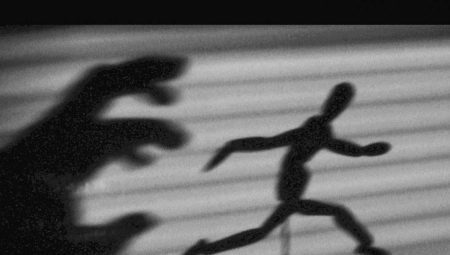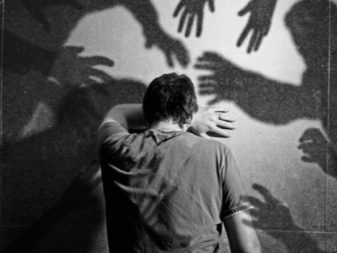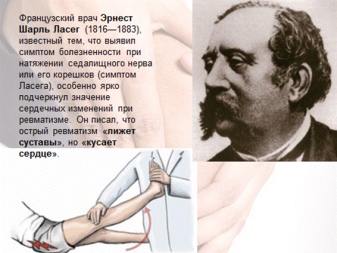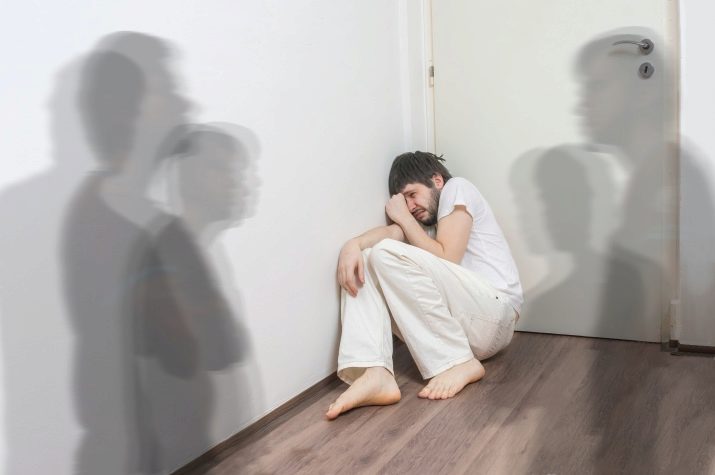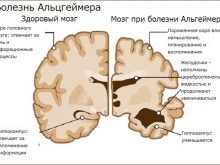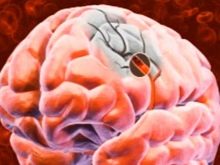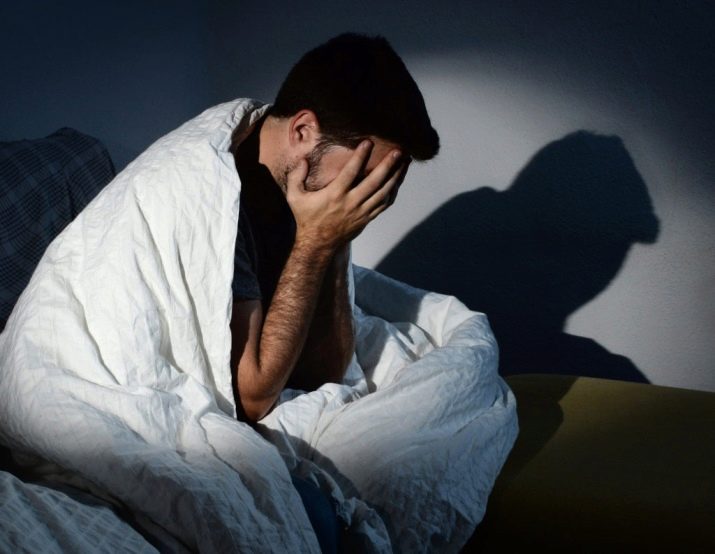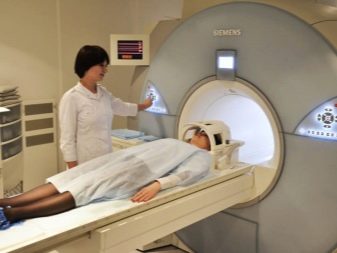At least once, each of us has met a person who is convinced that they are plotting something against him and are spying on him. When such facts are not confirmed, it is said that this individual has a persecution mania, which in the language of official medical science is called persecutory delusions or delusions of persecution.
What it is?
Delusions of persecution - a significant change in worldview, this state is a severe disorder of thinking, mental illness, in the presence of which the patient I am absolutely sure that someone alone or even a certain group of intruders carry out surveillance of him, pursue, spy, or even plot terrible wiles - murder, poisoning, strangulation, theft.
At the same time, neighbors, colleagues, a certain secret organization, a political or military association, the government, secret services can act as enemies for a person with a persecution mania. Even aliens and evil spirits can chase.
The first such mental disorder as a disease was described in the XIX century by a French psychiatrist Ernest Charles Lasegue. He and his followers have introduced a term that best describes what happens to people who experience delusional disorder.
The very idea that there is surveillance, and there are threats, makes the sick person almost that master of conspiracy - to avoid the imaginary danger that seems so real and obvious, a person is capable of actions that are more suitable for heroes of the spy film saga: they change turnouts and passwords, routes, can jump out of the vehicle on the move to change it to another and try to “leave” from the chase. But it is with this that significant difficulties arise - wherever a person is, he sees everywhere that he is being watched. Therefore, develop severe psychosis, phobias, a person can be quite aggressive.
Patients do not realize that their ideas about the world do not correspond to reality. They live in their own reality, full of dangers. Patients do not consider themselves to be, they often write numerous complaints to various agencies. These authorities are obliged to check the treatment, and pretty quickly the truth becomes apparent. But even after this, patients with persecution delusions do not change their convictions, and the authorities that have refused to investigate them are accused of colluding with “intruders”.
Often, people who behave like this are called paranoid, although, to be precise, paranoia is a separate mental health disorder that may accompany persecutory delusions.
Sometimes the idea of constant surveillance, surveillance, espionage, threats is associated with schizophrenia. In any case, the disease is considered difficult, difficult, and in need of treatment, since the constant presence of the patient in a state of extreme tension quickly depletes the reserves of his body.
Why does it occur?
Despite the fact that the disease has been known for several centuries, understanding of the reasons for which it appears, no longer became. Known only predisposing factors that can provoke the disease:
- excessive control over the external situation and self-control as a character trait;
- human sacrifice complex;
- helplessness, lack of independence in many issues of life;
- distrustful and aggressive reaction to others.
People who are predisposed to the development of a delusional state have the conviction that certain external forces, circumstances, and other persons control all human existence. They themselves do not decide anything, they have no opportunity to influence anything.
In the vast majority of cases, such a mental illness is formed in individuals who for a long time were subjected to humiliation, insults, beatings, violence. Gradually, resentment and fear became habitual, and the man began to try to avoid the unpleasant decision-making process and responsibility for his own life. Such individuals usually lay the blame for their failures and troubles on others, but they do not consider themselves to be guilty. This is the victim complex.
People experiencing mistrust and aggression towards others as a predisposing factor are very touchy. They regard any remark as a strong offense and a threat to their security, and for it they are ready to go into a fight. Often they claim to be victims of “human injustice”, “corruption of the authorities”, “arbitrariness of the security forces”.
Risk factors
In their search for the real root cause of persecution delusion, researchers have discovered some features (presumably inborn) of the central nervous system in individuals diagnosed with this. These are very sensitive people, inclined to exaggerate. If a child with the described type of nervous system is overprotected or ignored, then at some point the formation of the complex of a helpless victim begins. Under the influence of any traumatic adverse life circumstances, the nervous system produces a global failure, and symptoms of the disease appear.
Psychiatrists are confident that it is not only about the education and personal characteristics of the central nervous system, but also in the disruption of the functioning of the brain. The first such reason was supposedly voiced by the well-known Russian physiologist Ivan Pavlov, who was convinced that a site of pathological activity appeared in the human brain, which causes a change in its usual activity.
As a confirmation of Pavlov’s theory, it will be fair to note that people under the influence of drugs, with regular alcoholic libations, while taking certain medications, with Alzheimer's disease and atherosclerosis, are able to manifest temporary manic attacks of persecution.
Symptoms
Each of us perceives the world around us through the “glasses” of our perception and our individuality. But in general, the picture, so different for us in the details, is generally quite similar. If an individual has a mental disorder in the perception of reality, the prism of perception becomes different, then the small details and the overall picture of the world change. Often, delusions of persecution in men and women are not the only disease. Very often it goes along with schizophrenia, alcoholic psychosis, Alzheimer's disease in the elderly, but isolated persecution mania is also possible.
The fundamental signs of mental pathology are the presence of the so-called logic curve - false beliefs that make a person believe that someone is being followed him, that he is in mortal danger. It is impossible to persuade a sick mania persecution. His thinking takes no argument, no matter how persuasive and reasonable they are. In other words, a person’s thinking is not subject to correction from outside.
Do not think that the patient simply fantasizes, makes up, lies. No, he really sincerely believes that he is being watched, intrigues and intrigues are being plotted against him. He actually suffers from this, he is tormented by real fear. The stories that there is a real conspiracy against him are not a figment of fantasy. Consciousness of the patient is completely captured by false ideas.
On the physical level, this is manifested by anxiety, fussiness, constant anxiety. A person who believes that he is being watched, they want to kill him, begins to behave very strangely, but his actions seem strange only to outside observers. For him, his actions are quite logical.
Often, a patient with delusions of pursuit refuses his usual actions, if the arguments of the “logic curve” are applied to him: if he suspects that enemy spies want to poison him, he can stop eating, and if he is sure that the foreign special services want to knock him down to cross the road. If you are convinced that the surveillance takes place through a window, patients can not open the curtains, seal window glass with paper or paint over with dark paint. A foil helmet ("so that aliens do not read minds") is an action from the same series.
For delusions of persecution are characteristic:
- constant obsessive thoughts about the threat to life, health and safety from outside;
- manifestations of pathological jealousy (the patient begins to suspect not only the neighbors of vile plans, but also those close to them in treason, with no reason for such statements);
- distrust to everyone and to everything that the patient sees, hears;
- aggression, attacks of unreasonable anger, anxiety;
- sleep disorders, appetite, numerous autonomic disorders - rapid heartbeat, drops in blood pressure, dizziness, weakness, sweating.
The disease itself can be very different: some do not clearly understand what threatens them, what is behind it, how it can end, and others are well aware of the date of the beginning of “spying”, assess the damage and harm that “enemies” caused to them, and This indicates a high level of systematization of delirium.
It should be noted that symptoms in all cases increase gradually. At first, the enemy can be only one (for example, a husband or a neighbor), it is his patient who will suspect everything and blame, but then the circle of “suspects” will inevitably begin to expand - friends, neighbors, colleagues, acquaintances and strangers, real and fictional imagery. Gradually, a person begins to live in a dangerous world for him., his brain, thinking adapt to constant threats, and the patient begins to very clearly state the circumstances of the attempts on him, reproducing some details with incredible scrupulousness and accuracy.
The last thing is a change in the very personality of the person. Previously, a sincere and kind person can become constantly tense, aggressive, dangerous, alert. It is rather difficult to predict the actions that he can do after the collapse of his own personality, but one thing is certain - they have never been characteristic of him before.
As the world becomes massively hostile, people become isolated, no longer trust everyone without exception, to questions about why they have committed this or that strange act, reluctantly respond or do not answer at all.
Diagnostics
It is not difficult to find out the signs of such a mental illness, but all attempts to help the patient will not succeed, as well as attempts to convince him. And because doctors strongly recommend already at the first manifestations of something like a delusion of persecution, immediately lead a person to a psychiatrist. Procrastination, waiting, while “maybe everything will pass,” are dangerous - the disease progresses rapidly and over time it will become much more difficult to cure a person.
Considering that the disease may be isolated or be a concomitant symptom of another mental pathology, it is important to establish the diagnosis correctly and accurately. This can be done only by a qualified psychiatrist. He will talk with the sick person, talk to his relatives, friends, maybe even his neighbors, in order to establish all the nuances of behavioral reactions and the depth of the violation.
The family history is of great importance - cases of mental illness in parents, close relatives, cases of alcoholism in the family, schizophrenia, paranoid disorders. No less important are the patient's own bad habits, the characteristics of his personality before the start of changes. With the help of special tests and anxiety scales assess the level of fear, anxiety, especially emotional experiences, state of memory, attention, logic, thought processes.
To establish possible foci of pathological activity in the brain, an EEG is performed, to exclude organic lesions and neoplasms, MRI or computed tomography is done.
How to treat?
In the treatment of the delusional state of persecution, serious potent drugs are used, without them the person simply cannot get rid of the manifestations of constant stress and fear. But even with adequate treatment, no high-class specialist will guarantee that there will be no relapse. Psychotherapeutic methods that are used for the correction of many mental states in the case of persecution mania do not work - it is impossible to change the settings of a sick person, it is impossible to convince him, to prove that the world around is safe.
If the doctor tries to do this, he will immediately join the friendly and numerous rows of “enemies”, and to achieve the effect, trust is required. Therefore, all hope lies in the first stage. for typical and atypical antipsychotics (antipsychotics).
With signs of aggression, lack of balance, inadequacy of actions, it is recommended to undergo treatment in a psychiatric hospital as a person at any time can harm both himself and his family. In order to avoid the paradoxes of thinking against the background of the beginning of medical treatment, each case of persecution delusions is recommended to be treated in the hospital. Doctors switch to psychotherapy much later, when they manage to stop the symptoms of anxiety, panic, fear, aggression. In the most severe cases, electroshock therapy is used.
Something also depends on your close ones. They can provide support to a native person who is in trouble, they can help physicians by eliminating those external factors that most often caused anxiety in a patient. After the course of treatment, if everything goes well, a long course of rehabilitation is prescribed.
How to behave with the patient?
Whoever is talking about - husband, wife, neighbor or friend, relative, child or adult, the first and only thing you need to know - never, under any circumstances, try to laugh at the words of a sick person, speak with him sincerely , listen carefully, try not to disturb the person with clarifying questions.
Never try to convince him, to prove that there is no persecution, even if it is obvious. You will immediately become one of the ill-wishers who cannot be trusted. People with this disease very quickly draw the conclusions they need.
Try to convince a person of one thing - you are completely on his side, you want to help him and know where to look for help and salvation. If he believes, it will be possible to deliver a relative to a psychiatrist at the clinic. If the patient refuses to go, you can use the invitation of the doctor at the house, followed by hospitalization, if it is required.
On the subject of medicine in terms of medicine, see below.
